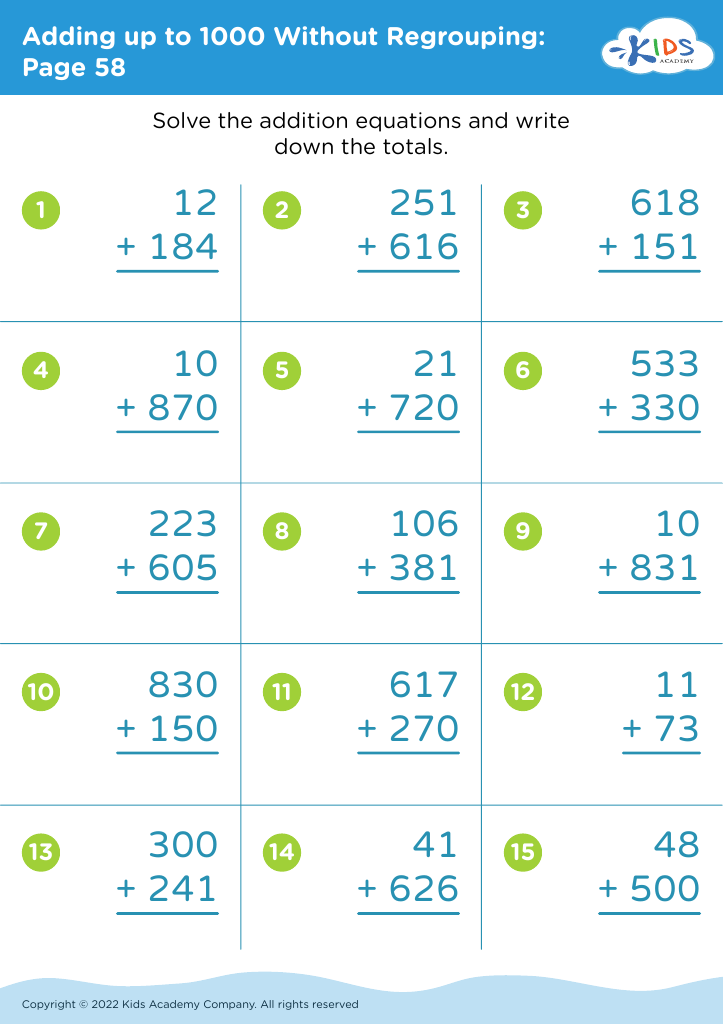Counting practice Adding up to 1000 Without Regrouping Worksheets for Ages 5-9
4 filtered results
-
From - To
Welcome to our Counting Practice Adding Up to 1000 Without Regrouping Worksheets, specially designed for children ages 5-9. These engaging worksheets help young learners practice their addition skills by focusing on sums that do not require regrouping. Perfect for boosting confidence in arithmetic, our activities offer a mix of fun and education, supporting your child's journey in mastering basic math concepts. Each worksheet is carefully crafted to enhance problem-solving abilities and foster a love for numbers. Whether at home or in the classroom, these resources are an excellent way to make counting fun and enjoyable! Get started today!
Counting practice, especially adding up to 1000 without regrouping, is a fundamental skill for children aged 5-9 that significantly influences their mathematical development. This early learning stage establishes the groundwork for future math concepts. For parents and teachers, fostering this skill is essential for several reasons.
First, mastering addition builds children’s confidence in their mathematical abilities. Completing calculations accurately without regrouping allows children to feel successful and instills a positive attitude towards learning. In turn, this confidence can lead to a greater interest in math as they progress.
Second, these skills are crucial for developing number sense, which is mental flexibility with numbers. It helps children understand how numbers work together, assists in problem-solving, and promotes analytical thinking. Understanding basic addition sets a pathway for more complex operations later on, including regrouping, subtraction, and eventually, multiplication and division.
Lastly, engaging in counting practice encourages parents’ and teachers’ involvement in children’s education. Working together on these skills promotes a supportive learning environment, which is vital for a child's development. By prioritizing counting and addition, adults can lay the foundation for academic success in all subjects.


















